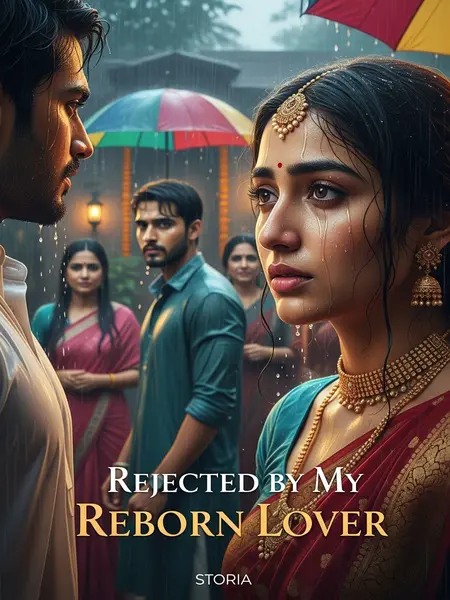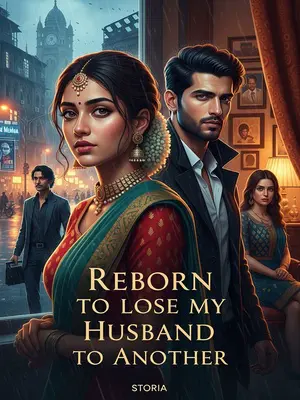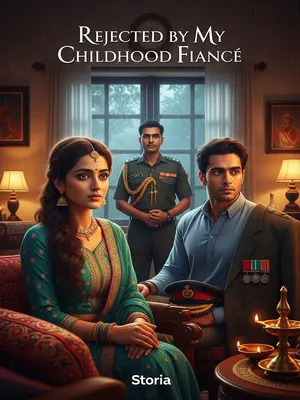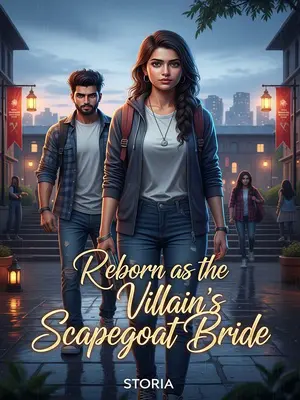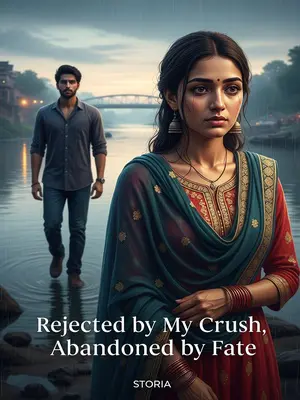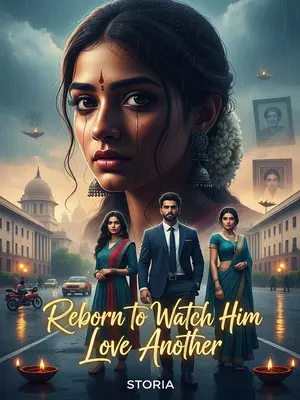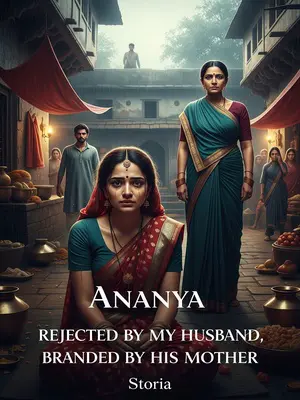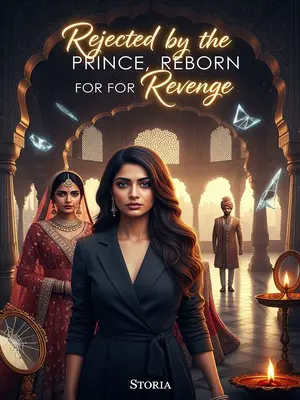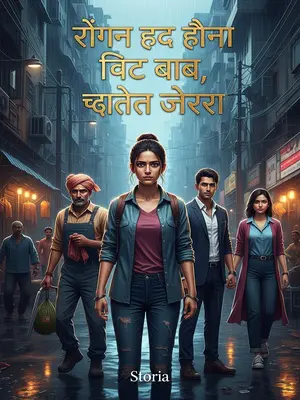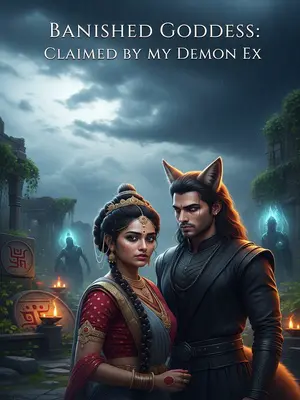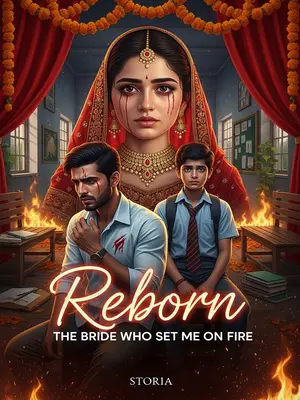Chapter 1: The Garland Game
Even after being reborn, my hands trembled as I threw the marigold garland—this time, hoping fate would be kinder.
The thick evening air pulsed with the scent of incense and the sizzle of pakoras from the corner stalls. My palms were slick with sweat, the mehendi on my wrist almost smudging as I twirled the garland—its marigolds and roses as bright as my old wounds. Amma’s bangles jingled anxiously beside me, her prayers silent but fierce. I clung to the ritual, grounding myself in its familiar rhythm, every sense sharpened by hope and dread.
I thought he would catch it, just as he had in my previous life.
Even now, the flicker of mischief in Arjun’s eyes—eyes I’d read more times than my own reflection—made my heart skip. Surely, he’d reach out and claim the garland, retie the promise that had survived lifetimes. For a moment, time itself seemed to hold its breath, as if even the gods waited to see what he would do.
But just as the garland, woven with marigolds, arced through the air, he turned his body ever so slightly, letting it pass him by.
A gasp rippled through the mohalla; even the paanwala stopped mid-chew, eyes wide. The marigolds, glowing saffron in the fading sun, spun gently as they tumbled past their mark. My fingers trembled, fiddling with the border of my dupatta, the red of my mehendi paling against my skin. Amma’s bangles chimed with dread.
The garland landed in the lotus pond with a gentle splash, sending ripples across the water.
Tiny dragonflies scattered, startled. Some children, their hands sticky from jalebi, stared wide-eyed; the priest paused mid-chant. The laughter and chatter of the Holi crowd faded to whispers. Even the city itself seemed to hush, as if the pond mourned the broken promise.
In that moment, I finally understood.
Everything—the heaviness in my chest, the strange chill in Arjun’s gaze—clicked into place. My heart, which had soared with hope, now thudded with an ache I knew too well. The marigolds floating in the pond seemed to mock me, their petals swirling in silent surrender.
He, too, had been reborn.
The truth settled over me as softly as the evening breeze, thick with the scent of damp earth and agarbatti. Whatever had tethered us before—fate, memory, love—was gone. The thread between us had been snapped, whether by destiny or by Arjun’s own hand.
And in this life, he no longer wished to marry me.
The realisation stung sharper than the cold marble beneath my bare feet. I remembered Dadi’s words—Sharma girls don’t cry in public, they fight with their eyes. With every gaze upon me, I stood tall, refusing to let tears betray me before the whole mohalla.
The garland rolled into the pond, and the entire gathering fell silent.
Not a word from the rows of relatives on plastic chairs or the elders fanning themselves in the corner. Even the street dogs, usually squabbling by the chaatwala, seemed subdued. All eyes shifted from Arjun to me, waiting to see if I would shatter or stand unbroken. The chachis pressed their paan-stained lips into thin lines; the younger girls watched, breathless.
My friends hovered close, their concern palpable. Anjali caught my eye, giving the tiniest shake of her head, reminding me to stay strong. Even Ruksana, always quick to stir drama, stood silent, her hand pressed to her mouth. In that heavy pause, I could feel every heartbeat, every held breath, as if the colony itself waited for my next move.
After all, Arjun and I had been childhood sweethearts. Our engagement had always seemed certain.
In our lane, it was a given—Priya and Arjun, together since the days of gully cricket and stolen mangoes. From school plays to festival pujas, our names were always spoken together. The aunties had already imagined our wedding, discussing my future children over cutting chai.
In my previous life, I did marry into the Singh family, just as I had wished.
I still remembered the heavy red bridal dupatta, the way Arjun’s eyes sparkled as he lifted my ghunghat, the sacred chants echoing my racing heart. Those memories clung to me like zari on silk—impossible to unpick.
Arjun treated me with unwavering devotion. He took me boating on Powai Lake, for long drives, and together we enjoyed all the beautiful sights Mumbai had to offer.
On Sundays, we’d share vada pav by the lake, laughing at pigeons and planning our future. Sometimes he’d hold my hand as the sun set, promising a world beyond the city’s chaos. With him, even Mumbai’s traffic jams felt like adventures. Our laughter, our love, our memories—they were treasures I still clung to.
Even when I struggled to conceive in our first two years, he refused the relatives’ suggestions to remarry. He always declared, “Agar mere ghar mein sirf Priya hai, toh mujhe aur kuch nahi chahiye.” His loyalty was my shield against their barbed words.
I spent more than a decade by his side. Even as illness claimed me in the end, his heart never wavered.
He sat by my hospital bed each night, hands folded in prayer. The smell of Dettol, the ticking clock, his tears on my cheek—those were my last memories of that life.
So, having lived again, I still chose to throw the flower garland to Arjun.
In this new birth, with the wisdom and wounds of my last life, I thought destiny would favour us again. The garland was more than a token—it was a bridge to all that was, and could have been.
I thought he would catch it as he always had, but in this life, everything changed.
The cruel certainty of that moment struck me like the slap of cold pond water. Where once his hand was always there to catch me, now there was only empty air. The marigolds, bobbing on the water, looked like prayers forgotten by the gods.
A myna called twice in the gulmohar tree, pulling me out of my thoughts.
The sharp notes felt like a warning. Somewhere, a coconut vendor shouted his wares; a scooter sputtered down the lane, breaking the hush. I blinked, gathering my resolve as the world around me slowly resumed its rhythm.
Anjali squeezed my hand, trying to comfort me: “Arrey Priya, maybe he just got distracted! Happens na, sometimes?” But her eyes darted anxiously to Arjun, as if she knew—like I did—that he never missed anything, not even by accident.
But Arjun came from an army family, skilled in sports and shooting. His reflexes were unmatched. The uncles would always say, “Woh toh hawaa mein teer pakad lega.” A marigold garland was nothing for him. The girls exchanged knowing glances; the elders pursed their lips in disapproval.
How could he possibly have missed?
My mind raced, heart pounding like the tabla in a bhajan. This was no accident—it was a message, delivered before all.
The gazes fixed on me felt as scorching as burning coals, making my cheeks flush with heat.
I felt the burn of embarrassment climb from my neck to my ears. Amma’s worried frown, Sharma uncle’s twitching moustache, the silent stare of the pandit—it was as if the whole mohalla waited to see if I would break. I remembered Dadi’s words—Sharma girls don’t cry in public, they fight with their eyes.
I said nothing. I simply watched as Arjun bent to retrieve the garland from the pond and approached me.
The world shrank to just us—me and Arjun, the garland limp and dripping in his hand. Water slid down his wrist; he wiped it on his kurta absentmindedly, his face unreadable. Somewhere, the harmonium resumed its uncertain melody.
“Priya Sharma, I’m sorry.”
His words, so cold, sliced deeper than any insult. Not 'Priya', not 'Chutki', but Priya Sharma—as if I were a stranger. The apology was as distant as the winter sea. Even the aunties fell silent, straining for what would happen next.
Just five words, calm and emotionless.
The air between us pulsed with unspoken things. The marigolds on the garland, still bright, seemed to mock the deadness in his tone. I twisted my silver ring, determined not to let tears betray me now.
A gentle breeze stirred, and the marigolds on the garland swayed softly.
I caught the scent of agarbatti, mingling with wet stone. The breeze lifted a strand of hair, sticking it to my lip. I focused on the ordinary—the chirping sparrow, the rustle of silk sarees—anything but the pain blooming in my chest.
I looked up at him.
Arjun’s face was half-shadowed by the setting sun. A line of sweat at his temple, his posture stiff—he was bracing for a storm, and I was that storm.
Arjun was reborn—just like me, seventeen again, but lifetimes heavier with memory. He looked the same as in my old diary sketches—tall, lean, but now with an invisible wall between us. Did he remember, too, those fevered vows whispered in hidden corners?
This year, our families had already begun the customary horoscope exchange, the first step before engagement. Just as our childhood betrothal was about to be announced, Arjun changed his mind.
There had been secret phone calls, kundlis spread on the puja room floor, promises made over hot chai. The priest declared our charts compatible; Amma hummed filmi songs as she counted bangles for my trousseau. No one, least of all me, expected this twist.
At seventeen, Arjun was as handsome and spirited as ever, just as I remembered. But behind his lowered lashes, something fundamental had changed.
His familiar smile was gone, replaced by a shadow. The Arjun who once teased me now stood silent, as if weighed down by secrets. He wouldn’t meet my eyes, and the chill of his indifference was sharper than any insult.
He refused to catch my garland, no longer called me Priya, and wouldn’t even meet my gaze.
Even as children, he’d always defended me—pushing away bullies, sharing his last piece of barfi. Now there was only distance. He stared at the ground, fingers clenching and unclenching, letting go of more than just a garland.
The change was so sudden that no one knew how to react.
The elders whispered, younger girls glanced nervously, and even the boys at the back fell silent. In the hush, only the distant honk of a BEST bus broke through. This moment would be retold in every drawing room for weeks.
Though I was born into an army family, I had been educated in poetry and literature, skilled in making chai and managing accounts, adept at receiving guests, composing verses, and playing the sitar. Among the girls of South Mumbai, I had always stood out.
From reciting Ghalib’s shayari at school events to wrangling cousins during Ganpati, I had a reputation—intelligent, poised, always ready with a comeback. My sitar playing won medals; my chai, praise from the strictest aunties. The uncles joked, "If only our sons had half your brains, Priya beti."
Such a Priya Sharma was never one to bow her head and weep.
Generations of Sharma women had faced storms and emerged with their saris unruffled. I would be no different, even if my heart threatened to burst. Dadi’s words echoed: “Sharma girls do not break, beti—they bend like the neem in a storm.”
The heat in my chest only burned more fiercely.
Anger and humiliation mixed within me, kindling something stubborn. My lips pressed together, my resolve hardening. The world could watch, but I would not give them the satisfaction of my tears.
So I strode up to Arjun. Standing close enough to touch, I snatched the garland from his hand.
Each step echoed on the stone path. Eyes bored into my back, Amma’s gasp of shock, children craning for a better view. My fingers brushed his, cold from pond water, and I saw surprise flicker across his face. A heartbeat passed before I turned away.
Without looking back, I flung it into the crowd.
My arm arced with all the force of my wounded pride. The garland soared, scattering droplets, vanishing into the sea of relatives and neighbours. Somewhere, an aunt ducked; someone squealed. I didn’t care. My message was clear.
A gasp and a thud—someone yelped as the garland landed. The crowd shifted, some stifling laughter, others shaking their heads in disbelief. Let them talk, I thought.
I kept my eyes fixed on Arjun’s lashes, which trembled slightly with confusion, and spoke each word with deliberate clarity:
I willed him to look at me, to remember. My voice rang out, firm and unyielding, breaking the hush like a temple bell at dawn.
“Arjun, you know this about me.
“I, Priya Sharma, am not one to forgive a slight. If I am wronged, I will never let it go.”
The words hung in the air, sharp as broken glass. A murmur rippled through the gathering. Amma tried to shush me with a look, but I stood my ground, daring anyone to challenge me. For a fleeting moment, I glimpsed something like regret in Arjun’s eyes.
Arjun took two steps back, lips parted as if to speak, but no words came out.
He seemed suddenly so young, so uncertain, all the bravado gone. The air between us felt charged, heavy with everything left unsaid. He turned away, and I watched his silhouette blur at the edges, swallowed by the crowd.
